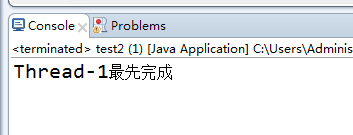1.描述
保证一个类仅有一个实例,并提供一个访问他的全局访问点。
2.模式的使用
·在JVM加载单件类时创建他的唯一实例。
·在单件类提供的类方法中创建这个唯一实例。
1 package 单件模式; 2 3 public class test1 { 4 5 public static void main(String[] args) { 6 Moon moon1 = Moon.getInstance(); 7 Moon moon2 = Moon.getInstance(); 8 System.out.println(moon1.hashCode() + " " + moon2.hashCode()); 9 } 10 11 } 12 13 /* 14 * 在JVM加载时唯一创建 15 */ 16 class Demo1{ 17 private static Demo1 demo1 = new Demo1(); 18 private Demo1(){} 19 public static Demo1 getInstance(){ 20 return demo1; 21 } 22 } 23 24 /* 25 * 在单件提供类方法是唯一创建 26 */ 27 class Demo2{ 28 private static Demo2 demo2; 29 private Demo2(){} 30 public static synchronized Demo2 getInstance(){ 31 if(demo2 == null) 32 demo2 = new Demo2(); 33 return demo2; 34 } 35 } 36 37 class Moon{ 38 private static Moon moon; 39 double radius, distanceToEarth; 40 private Moon(){ 41 moon = this; 42 radius = 1728; 43 distanceToEarth = 363300; 44 } 45 public static synchronized Moon getInstance(){ 46 if(moon == null) 47 moon = new Moon(); 48 return moon; 49 } 50 51 public String show(){ 52 return "月球半径" + radius + "千米,距地球距离" + distanceToEarth + "千米"; 53 } 54 }

3.使用情景
·当系统需要某个类只能有一个类。
4.优点
·单件类唯一实例由单件类本身控制,便于控制用户访问。
5.UML图
没有
6案例
多个线程执行任务,获取最先完成的线程的信息。思路是:使用单件模式设计一个End类,用最先完成的线程初始化一个end对象即可。
1 package 单件模式; 2 3 import java.util.ArrayList; 4 5 public class test2 { 6 7 public static void main(String[] args) { 8 Threads t1 = new Threads(); 9 t1.setN(10000); 10 Threads t2 = new Threads(); 11 t2.setN(10000); 12 Threads t3 = new Threads(); 13 t3.setN(10000); 14 t1.setPriority(10); 15 t2.setPriority(5); 16 t3.setPriority(6); 17 t1.start(); 18 t2.start(); 19 t3.start(); 20 System.out.println(End.getInstance().getMess()); 21 } 22 23 } 24 25 /* 26 * 最先完成的线程得到该唯一End对象 27 */ 28 class End{ 29 private static End end; 30 String mess; 31 private End(String mess){ 32 this.mess = mess; 33 } 34 35 private End(){} 36 37 public static synchronized End getInstance(String mess){ 38 if(end == null) 39 end= new End(mess + "最先完成"); 40 return end; 41 } 42 43 public static synchronized End getInstance(){ 44 if(end == null) 45 end= new End(); 46 return end; 47 } 48 49 public static void initEnd(){ 50 end = null; 51 } 52 53 public String getMess(){ 54 return mess; 55 } 56 } 57 58 /* 59 * 线程 60 */ 61 class Threads extends Thread{ 62 int n; 63 End end; 64 65 public void setN(int n) { 66 this.n = n; 67 } 68 69 public void run() { 70 synchronized (this){ 71 while(n > 0){ 72 n--; 73 } 74 End end = End.getInstance(this.getName()); 75 } 76 } 77 }

有时候结果为NULL,我还得再研究一下怎么回事。